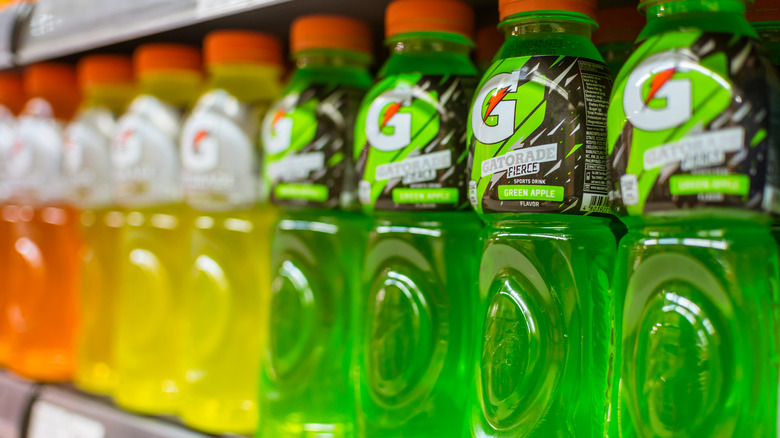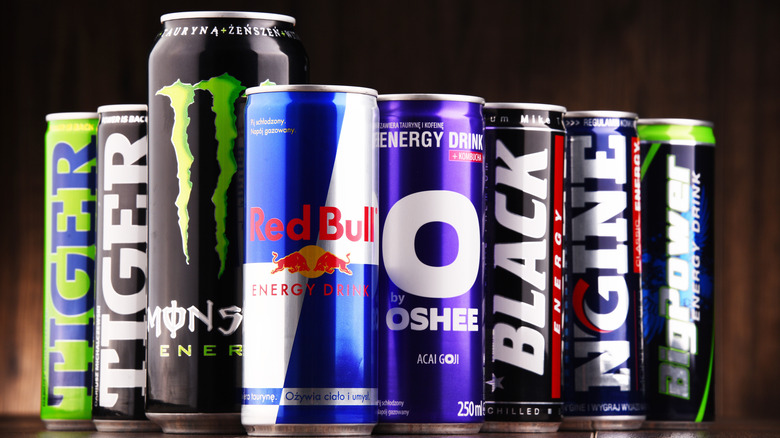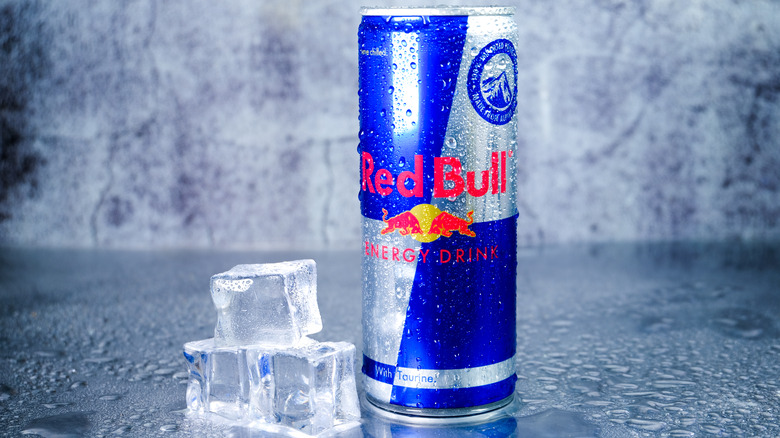What's The Difference Between Sports Drinks And Energy Drinks?
You might think of sports drinks and energy drinks as the same kind of beverage, but they are marketed and used for different purposes. Sports drinks contain electrolytes that your body loses during exercise. These include sodium, potassium, magnesium, and calcium. Some may also contain some vitamins. While sports drinks can rehydrate your body, they aren't always a healthy choice. This is because some of them contain sugar and high-fructose corn syrup (via Harvard Health).
Generally, adults usually only need to drink sports drinks during strenuous exercise that lasts longer than an hour. In fact, Harvard Health reports that consuming too many sports drinks without needing to rehydrate can increase the risks of developing obesity, type 2 diabetes, and heart disease.
Water is considered the preferred choice of hydration if you're not exercising vigorously for more than 60 minutes. Furthermore, a balanced diet with healthy snacks and sufficient water should be enough to keep electrolytes balanced, notes Harvard Health.
Energy drinks are stimulants
Energy drinks, on the other hand, are meant to increase energy levels. The National Center for Complementary and Integrative Health (NCCIH) explains that caffeine is the major ingredient in most of these beverages, and some contain as much as 240 milligrams in one 16-ounce serving. That is compared to 100 milligrams in the average eight-ounce cup of coffee.
Some energy drinks contain other ingredients thought to boost energy, such as guarana, ginseng, and yohimbe. Many also include sugar, with some exceeding the recommended daily intake, which is 36 grams for men and 25 grams for women (via American Heart Association).
While these products get a lot of hype, the NCCIH urges consumers, especially children, teenagers, and young adults, to be aware of how many energy drinks they consume. These beverages can cause health problems, such as increased heart rates, sleep problems, digestive issues, anxiety, and dehydration.
Consume energy drinks in moderation
The amount of stimulants in energy drinks can have negative effects on anyone. While it is common knowledge that caffeine consumption should be limited for children and teens (per Johns Hopkins Medicine), adults also need to pay attention to how much they are consuming. More than 400 milligrams of caffeine can lead to heart palpitations, disturbances in heart rhythms, and a higher blood pressure and heart rate (via Insider).
Energy drinks should also never be mixed with alcohol. Insider reports that drinking caffeine and alcohol can affect how inebriated you may feel. Insider explains that caffeine dulls the intoxifying effect of alcohol, leaving you energized but still impaired. In addition, people might be more prone to binge drink because they don't feel the effects of alcohol like they would without the additional caffeine.
For those who like to consume energy drinks, it should be done in moderation. Otherwise, try eating a healthy snack to help increase energy instead (via Insider).



